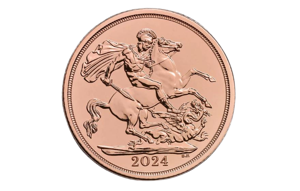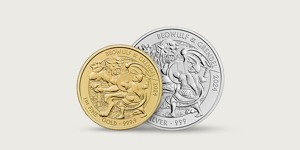Tavex uses cookies to ensure website functionality and improve your user experience. Collecting data from cookies helps us provide the best experience for you, keeps your account secure and allows us to personalise advert content. You can find out more in our cookie policy.
Please select what cookies you allow us to use
Cookies are small files of letters and digits downloaded and saved on your computer or another device (for instance, a mobile phone, a tablet) and saved in your browser while you visit a website. They can be used to track the pages you visit on the website, save the information you enter or remember your preferences such as language settings as long as you’re browsing the website.
| Cookie name | Cookie description | Cookie duration |
|---|---|---|
| tavex_cookie_consent | Stores cookie consent options selected | 60 weeks |
| tavex_customer | Tavex customer ID | 30 days |
| wp-wpml_current_language | Stores selected language | 1 day |
| AWSALB | AWS ALB sticky session cookie | 6 days |
| AWSALBCORS | AWS ALB sticky session cookie | 6 days |
| NO_CACHE | Used to disable page caching | 1 day |
| PHPSESSID | Identifier for PHP session | Session |
| latest_news | Helps to keep notifications relevant by storing the latest news shown | 29 days |
| latest_news_flash | Helps to keep notifications relevant by storing the latest news shown | 29 days |
| tavex_recently_viewed_products | List of recently viewed products | 1 day |
| tavex_compare_amount | Number of items in product comparison view | 1 day |
| Cookie name | Cookie description | Cookie duration |
|---|---|---|
| chart-widget-tab-*-*-* | Remembers last chart options (i.e currency, time period, etc) | 29 days |
| archive_layout | Stores selected product layout on category pages | 1 day |
| Cookie name | Cookie description | Cookie duration |
|---|---|---|
| cartstack.com-* | Used for tracking abandoned shopping carts | 1 year |
| _omappvp | Used by OptinMonster for determining new vs. returning visitors. Expires in 11 years | 11 years |
| _omappvs | Used by OptinMonster for determining when a new visitor becomes a returning visitor | Session |
| om* | Used by OptinMonster to track interactions with campaigns | Persistent |
| Cookie name | Cookie description | Cookie duration |
|---|---|---|
| _ga | Used to distinguish users | 2 years |
| _gid | Used to distinguish users | 24 hours |
| _ga_* | Used to persist session state | 2 years |
| _gac_* | Contains campaign related information | 90 days |
| _gat_gtag_* | Used to throttle request rate | 1 minute |
| _fbc | Facebook advertisement cookie | 2 years |
| _fbp | Facebook cookie for distinguishing unique users | 2 years |
Capital Gains Tax (CGT) and Gold

As of April 2024, the Capital Gains Tax-free limit will drop. Capital gains tax is a levy imposed by the government on the profit made from selling certain types of assets. These can include investments like stocks and bonds, as well as tangible assets such as real estate or, notably, gold. The rationale behind this tax is to tax the financial gain realised from the investment at the point of sale.
What is Capital Gains Tax?

At its core, capital gains tax applies to the difference between the selling price of the asset and its original purchase price, known as the “capital gain.”
This tax is only applicable when the asset is sold and a profit is realised, meaning that the value increase of an asset is not taxed until it is sold
The New Capital Gains Tax Allowance in 2024
The UK’s capital gains tax-free limit will drop from £12,300 in 2022–2023 to just £3,000 as of April 6, 2024. As a result, if the total value of gains generated during the tax year reaches £3,000, individual investors will probably have to pay CGT. This could result in thousands of additional investors becoming subject to CGT for the first time.
In this shift, investors may want to look into bullion coins that are exempt from capital gains tax, such Britannia and The Sovereign, given the lower CGT level. Because these coins are exempt from CGT and are regarded as legal money in the UK, investors have a clever way to protect their earnings without having to pay higher rates in taxes.
A percentage of an investment portfolio devoted to these coins may prove beneficial, enabling investors to diversify their holdings and take advantage of the tax advantages that come with buying bullion coins.
How Capital Gains Tax (CGT) Works
The tax rate applied to capital gains can vary based on how long the asset was held before being sold. Assets held for over a year typically fall into the long-term capital gains category, which benefits from lower tax rates compared to short-term capital gains, or assets held for less than a year, for UK residents.
Capital Gains Tax on Gold

Throughout history, gold has played a pivotal role in economies worldwide, serving as currency, a standard for trade, and a store of value. This historical significance adds to its allure as a stable investment, especially in times of economic uncertainty.
Gold’s reputation as an inflation hedge comes from its price tending to rise when the cost of living increases. As currencies lose their purchasing power to inflation, gold can retain its value, making it a safe haven for investors looking to protect their wealth.
The IRS considers gold, whether in the form of bullion, coins, or gold ETFs, as a “collectible.” This classification subjects gains from gold investments to a different tax treatment compared to other types of assets.
How are Gold Investments Taxed

Gains from gold investments are subject to capital gains tax (CGT). However, since gold is treated as a collectible, long-term gains (from assets held for more than one year) are taxed at a maximum rate of 28%, which is higher than the long-term capital gains tax rates for most other assets.
However, please note, any UK bullion produced by The Royal Mint are exempt from CGT
Because Royal Mint gold coins are legal tender in the United Kingdom, UK residents are not required to pay Capital Gains Tax on them.
The popular Queen’s Beasts collection, Sovereigns, and gold and silver Britannia coins are all considered CGT-free investments, as are all other gold, silver, and platinum bullion coins made by The Royal Mint.
 In Stock
In Stock
Investors can benefit tax-free and indefinitely from any bullion coin created by The Royal Mint because of their exemption from capital gains taxes. In contrast, the earnings on the sale of the great majority of other investments and assets – such as artworks, antiques, most shares, and any property other than the owner’s primary residence – are subject to capital gains tax (CGT).
Long-Term vs Short-Term Capital Gains
The distinction between long-term and short-term gains is crucial for gold investors. Short-term gains are taxed at the investor’s ordinary income tax rate, which could be higher than the 28% rate for long-term gains, depending on their tax bracket.
Calculating Capital Gains on Gold

To calculate the capital gains on gold, investors need to determine their basis in the investment, which generally includes the purchase price plus any additional expenses related to acquiring the gold.
The capital gain on gold is the difference between the buying and selling price and the investment’s basis. If the gold is sold for more than the basis, the profit is a capital gain and subject to tax.
Determining the Basis of Gold Investments
The basis of a gold investment is its purchase price, along with any associated costs such as dealer premiums, setup fees, and storage costs. This total cost forms the basis against which the sale price is compared to determine the capital gain.
 In Stock
In Stock
Strategies to Minimise Capital Gains Tax on Gold
Investors can employ strategies like holding their gold investments for more than a year to benefit from the lower long-term capital gains tax rate or using losses from other investments to offset gains through tax-loss harvesting.
Extending the holding period of gold investments to over a year can significantly reduce the tax liability by qualifying the gains as long-term.
Legal Considerations and Reporting

Properly reporting gold sales and understanding the legal considerations, including IRS requirements and potential exemptions, is crucial for gold investors.
The IRS Reporting Requirements mandates the reporting of gold sales on Form 8949 and Schedule D of the tax return. This ensures that all capital gains are accurately reported and taxed.
Key Takeaways
- Gold, as a precious metal, remains a sought-after investment for those looking to preserve wealth and protect against inflation, and for tax purposes.
- However, understanding the implications of capital gains tax on gold investments is essential for maximising returns and minimising tax liabilities.
- By employing strategic planning and seeking professional advice, investors can navigate these challenges effectively.
FAQs
1) What other taxes is gold exempt from?
Gold’s unique position, exempt from both VAT and CGT, enhances its appeal as a stable investment in the UK. Learn more about the tax reliefs that buying gold gives in an investment portfolio here.

















